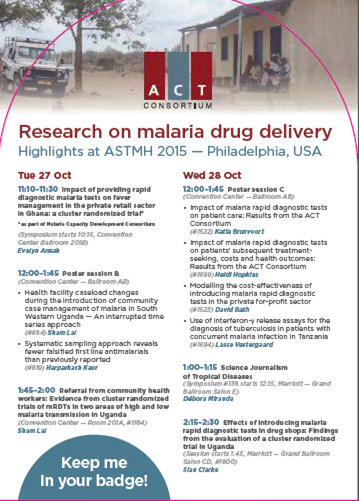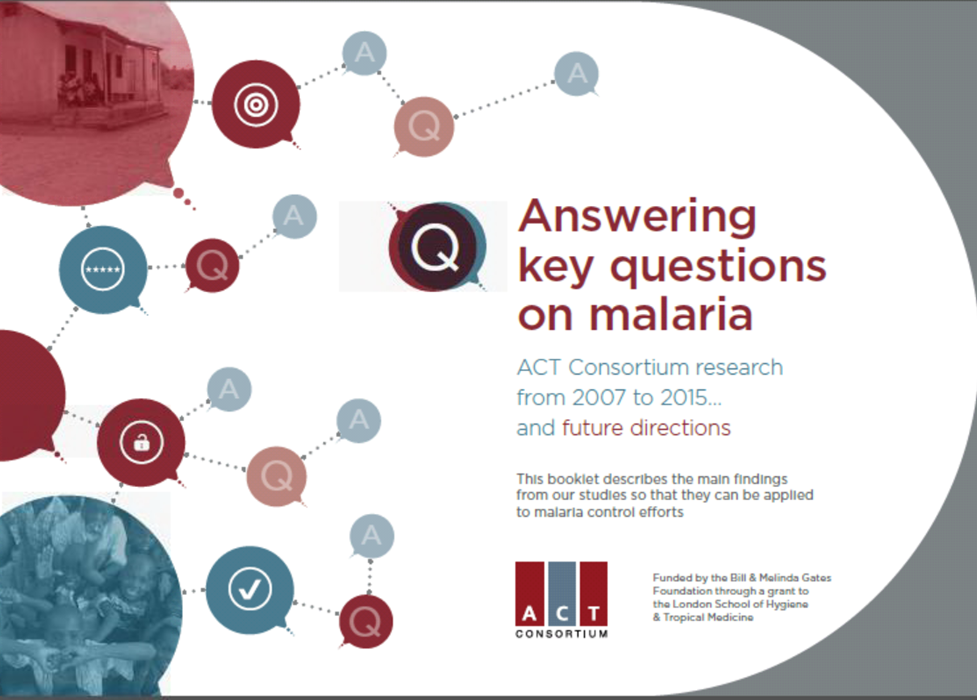Findings from eight years of malaria research at major conference
19 October 2015

The ACT Consortium presents results from 25 studies conducted in 10 countries since 2007 at this year's American Society of Tropical Medicine and Hygiene (ASTMH) meeting. The conference takes place in Philadelphia, USA between 25 and 29 October.
As the artemisinin-based combination treatment (ACT) Consortium draws to a close, investigators are ready to present results from research conducted between 2007 and 2015 in African and Asian malaria-endemic countries.
The international research collaboration was set to answer key questions on malaria drug delivery, particularly to improve the targeting of, and access to ACTs, as well as their safety and quality. ACTs are the recommended treatment for Plasmodium falciparum,
the most dangerous form of malaria.
Schedule of ACT Consortium research at ASTMH 2015
The ACT Consortium is running exhibition booth 408 at ASTMH. From Sunday 25 October, all delegates can collect the schedule of posters and presentations from consortium studies:
Click on the image to download the schedule
Ask and answer key questions on malaria drug delivery
The ACT Consortium encourages all delegates to engage in Q&A activities at booth 408, by writing questions and answers related to malaria drug delivery.
The discussions will follow on from the consortium's new booklet summarising the 25 studies:
The booklet provides answers to the following questions:
- Where do patients seek care?
- What influences the uptake of rapid diagnostic tests (RDTs)?
- Do health providers prescribe according to RDT results?
- What are the effects of RDTs on patients and the health care system?
- What else happens when RDTs are introduced?
- How can we improve the management of patients with fever in all health care sectors?
- If it's not malaria, what is it?
- How safe are ACTs in "real-world" use?
- How safe are ACTs in vulnerable populations?
- What is the quality of ACTs in the market?
- What did we learn from developing our projects?
Free copies in the three languages will be available at the exhibition booth.



